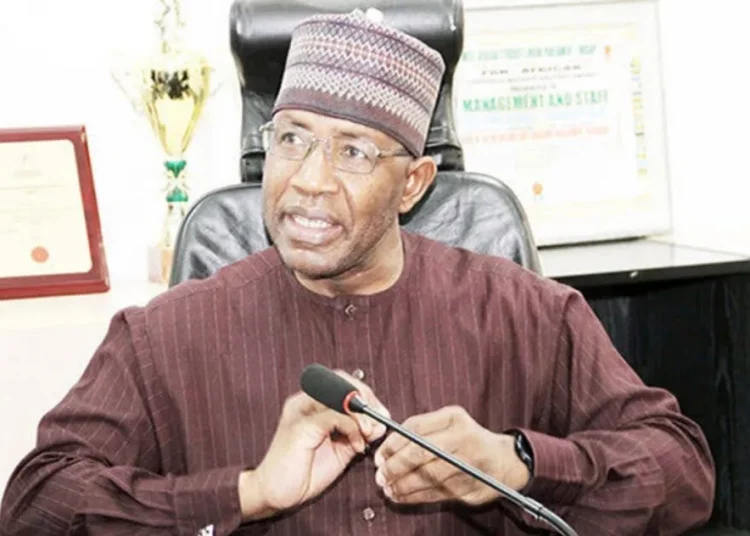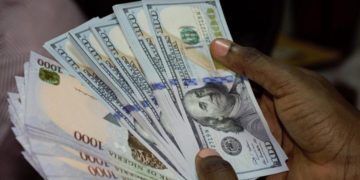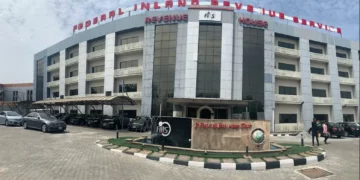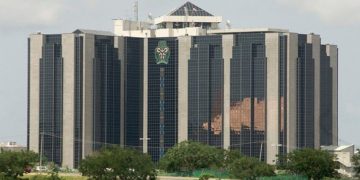The $1trillion economy target by the president Bola Tinubu-led federal government is realisable and achievable through the capital market, the director general, Securities & Exchange Commission(SEC), Lamido Yuguda said.
President Bola Tinubu had told the business community at the Nigerian Economic Summit (NES) recently that Nigeria’s economy can grow to $1 trillion by 2026, adding that a $3 trillion Nigerian economy is possible in 10 years.
Briefing journalists on the outcome of the third meeting of the Capital Market Committee (CMC) in 2023 in Lagos, at the weekend, he said, his commission is focusing on how to galvanise the capital market funds into infrastructure to enhance the realisation of the $1trillion economic target by 2026.
This plan, he stressed, would address infrastructural deficit in the country by ensuring funding of critical infrastructure projects through the capital market, which will not only provide a conducive operating environment for businesses, it will also enhance the production capacity of Nigerians, thereby, soaring the nation’s economic growth and development.
Believing the market and investors literacy and public awareness are critical to mobilise more companies and investors to take advantage of opportunities offered by the capital market, he is optimistic that the foreign exchange crisis that is limiting the influence of foreign investors on the capital market would soon be resolved by the current administration.
Giving details of the recently concluded CMC meeting, he said, the meeting mandated SEC to enhance public awareness of the capital market’s benefits, expressing optimism that the envisioned one trillion-dollar economy could be realised, with the help of collaborative efforts and productive actions in the capital market.
He noted concerns around the recent reclassifications of Nigerian securities indices by FTSE-Russell and MSCI, attributing these to the present foreign exchange liquidity challenges, and its effects on investor confidence.
Addressing the challenges posed by high-interest rates on government treasury securities, he stressed the need for strategic measures to attract more investments into the capital market.
Expressing optimism about unlocking the full potential of the capital market, aligning it with the Renewed Hope Agenda of the President Ahmed Bola Tinubu administration, he disclosed that, “the Chairperson of the Technical Committee on the Commodities Trading Ecosystem, Ms. Daisey Ekineh, informed the CMC about ongoing engagement with the Standards Organisation of Nigeria (SON) to secure approval of certain standards and the adoption of additional commodity standards sanctioned by the African Organisation for Standardisation (ARSO).”
“She highlighted other initiatives by the Technical Committee, with a particular focus on introducing commodity derivatives. Ms. Ekineh also highlighted other ongoing engagements, including efforts to work with the National Insurance Commission (NAICOM) to further de-risk the ecosystem by introducing insurance products that suit the needs of the commodities producers and traders,” he added.
In conclusion, he said, the meeting underscored the Capital Market Committee’s dedication to propelling Nigeria’s economic growth, fostering collaboration, and embracing innovation to build a greater future for the nation as it once again offered the capital market community an opportunity to rededicate its efforts towards further deepening of the market to serve as a veritable tool for infrastructure financing in the country.
Listing those present at the CMC meeting to include: chairman of the Senate Committee on Capital Market, Senator Osita B. Izunaso, and his deputy, senator Peter N. Jiya as well as the chairman of the House Committee on Capital Market and Institutions, Solomon T. Bob, and his deputy, Dr. Muktar Umar Zakari along with other distinguished guests, he highlighted key economic indicators, including Nigeria’s headline inflation rate, GDP growth rate, and market performance.











